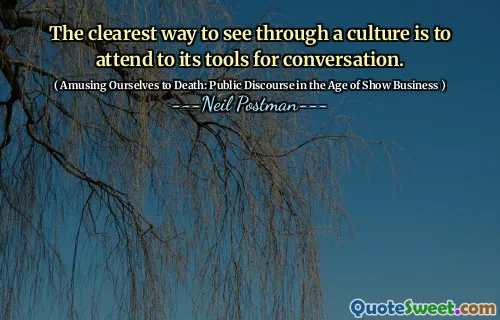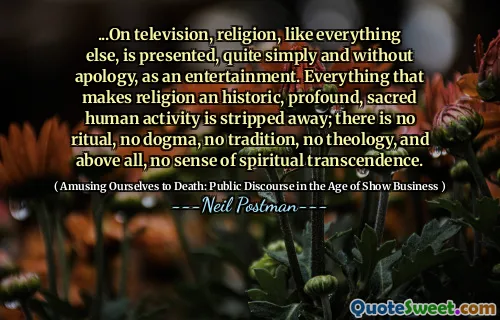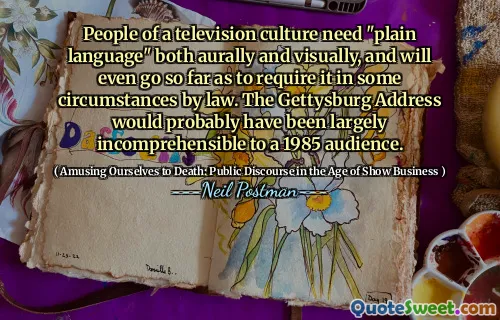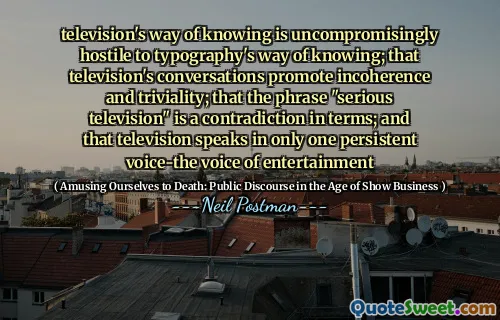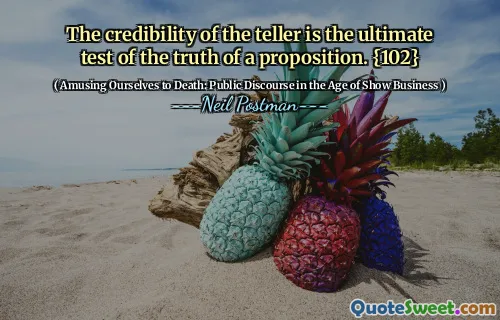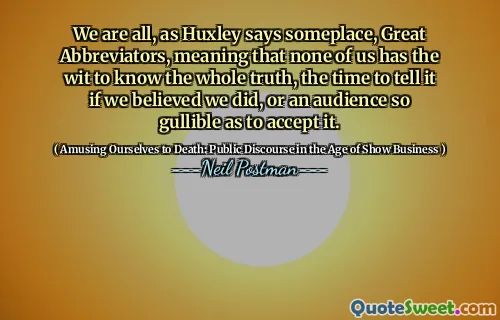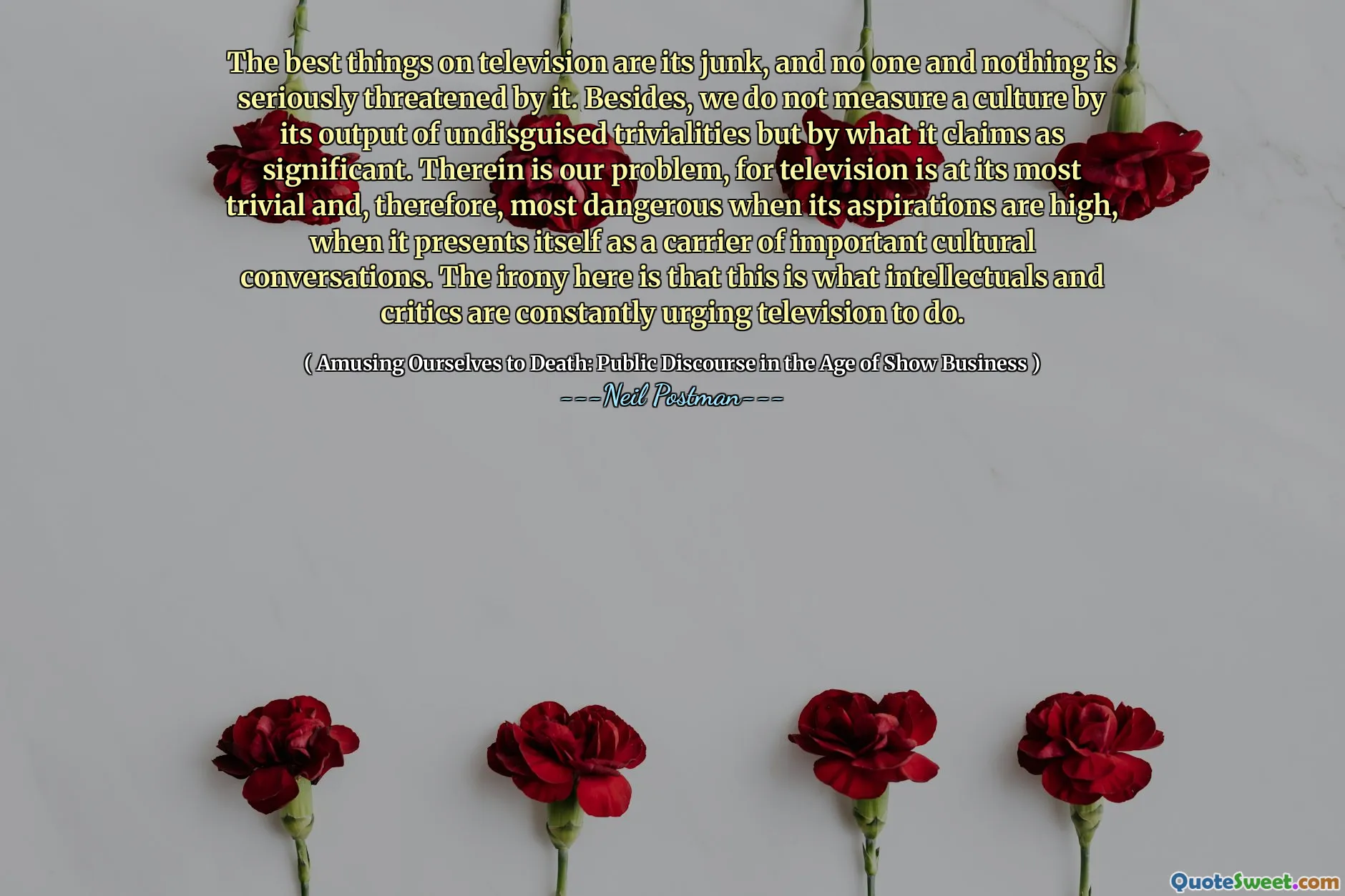
The best things on television are its junk, and no one and nothing is seriously threatened by it. Besides, we do not measure a culture by its output of undisguised trivialities but by what it claims as significant. Therein is our problem, for television is at its most trivial and, therefore, most dangerous when its aspirations are high, when it presents itself as a carrier of important cultural conversations. The irony here is that this is what intellectuals and critics are constantly urging television to do.
Neil Postman argues that the trivial content on television, while often regarded as mere junk, poses a significant threat when it pretends to engage in serious cultural discussions. He points out that society doesn't truly gauge its culture by the frivolous material it produces, but instead by what it considers meaningful. This reveals a paradox where television, in its attempts to convey deep societal issues, often becomes even more trivial and misleading.
This situation highlights the concern that critics and intellectuals have, as they call for television to take on more weighty subjects. However, when television rises to meet these expectations, it risks delivering shallow interpretations of significant matters, further blurring the line between entertainment and genuine discourse. Thus, what is intended as a platform for important conversations ultimately risks undermining those very discussions.
